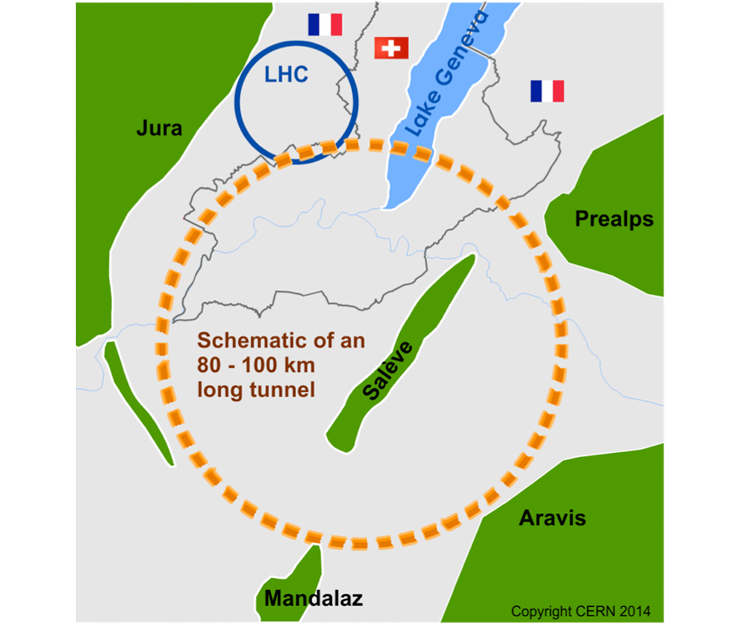JINR takes part in FCC construction
News, 01 October 2018
The Joint Institute for Nuclear Research, jointly with other Russian scientific centres, takes an active part in development of the world largest scientific facility with the unique tasks – the Future Circular Collider – that is planned to be constructed in Switzerland in the 2030s. It was announced by the First Deputy Minister of Science and Higher Education of the Russian Federation Grigory Trubnikov at the Global Forum on Naturally Based and Convergent Technologies that was held on 28-29 September 2018 in Sochi.
G.V. Trubnikov commented on this statement to the TASS News Agency.
“Russian scientific centres and institutes, namely the National Research Centre “Kurchatov Institute”, the Joint Institute for Nuclear Research (JINR, Dubna), the Institute of Nuclear Physics of the Siberian Branch of RAS (INP RAS, Novosibirsk), Rosatom companies, take an active part in work on FCC. Firstly, we participate in calculations, i.e. in development of the facility project and modelling, secondly, we carry out research and design-experimental work at some FCC elements,” he said.
According to G.V. Trubnikov, INP is engaged in development of accelerating systems and focusing systems, JINR develops superconducting magnets for the collider, TVEL (Rosatom company) produces superconducting materials. “Real prototypes are made in Russia, we do all this at the expense of the institutes, and this is our contribution, which will then be capitalized in the future facility,” G.V. Trubnikov added.
About the collider of the future
The megascience facility that has been given the name Future Circular Collider should replace the Large Hadron Collider of CERN. Scientists expect to continue fundamental research in the fields of particle physics at FCC and better understand the state of the Universe in the earliest period of its existence.
FCC sizes will be colossal: its length is 100 km. Construction of such scientific machine demands an enormous number of strands (wires).
According to G.V. Trubnnikov, development of the FCC project is a complicated task. “Today it is necessary to develop such a scientific facility that will be still advanced and unique by the time of its commissioning after the 2030s,” he added.
Deputy Minister also expressed the opinion that the FCC facility will definitely not be the last collider in the world as far as there are advanced projects on development of scientific facilities based on new principles in both Russia and the USA.
